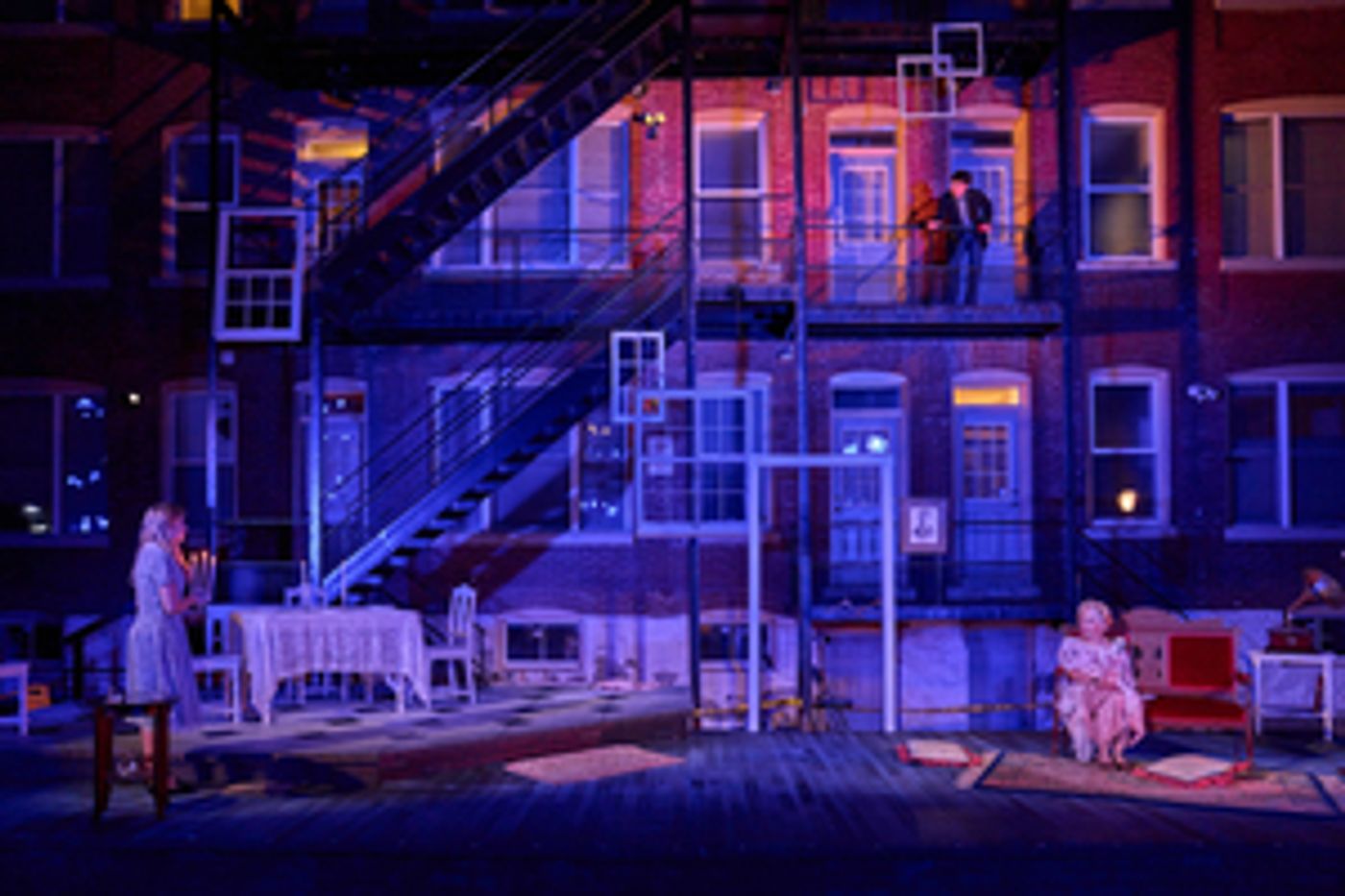Review: THE GLASS MENAGERIE at Tennessee Williams St. Louis Festival
Staged On Location, The Glass Menagerie Is Unforgettable

Placed as the centerpiece for the sixth annual Tennessee Williams Festival St. Louis, The Glass Menagerie is a classic work of American drama that captures the angst of pre-World War II America, and the frustrations of its middle class who seek to make their lives more fruitful.
Smartly directed by Brian Hohlfeld and performed outside The Tennessee (4633 Westminster Place), the building where Williams' family resided when they arrived in St. Louis, this riveting production of The Glass Menagerie is the perfect homage to Williams' legacy.
The plot is layered in family drama. Amanda Wingfield is a middle-aged Southern belle making do with what she has to scrape by a living with her children. Abandoned by her husband, she has a practical worldview that makes her appear hard and callous. Living in a rundown apartment in St. Louis, she focuses on leaving a better future for her children.
Amanda is very worried about her daughter Laura whose limp, shyness, and insecurities have hindered her from living a rich life. Trapped in a world of records and her glass collection, she has few professional or romantic prospects. Unmotivated, scared, and prone to anxiety, she is a lost soul.
She also frets over her son Tom. Their battles from pillar to post about how he should be living a better life, help support the family, and help secure a better future for Laura mask a genuine affection for one another. In the meantime, Tom, frustrated by his job at a shoe warehouse, wants more than his banal life in St. Louis. A creature of the night, he hurdles himself headlong into a nightlife of "movies," parties, and social gatherings that allow him to explore his creative side. Tom's devotion to family and personal freedom is put to the test when Amanda pushes him to invite his friend Jim to call on Laura. Although Tom and his mother do not know it yet, Jim's arrival will change everything.
Set amidst an outside world filled with revolution and labor unrest, The Glass Menagerie uses the Wingfield family as a way to explore how we look at the world and how our world looks to others who peer into it through windows. It also presents a world filled with withdrawing and wishing as each character reflects on what their life could be like if things were different.
Lurking in the shadows of Tennessee Williams' memory play is the idea that relationships are complicated. Its core themes of independence, accepting reality, seeking success, and getting by, resonate as loudly today as much as they did when it was debuted in 1944.
In addition to Hohlfeld's adept use of a site-specific space to underscore the importance of place in the work, the cast is superb. Brenda Currin shines as Amanda, a matriarch who has held down the fort on her own for sixteen years. Determined to get her children ready for the future she can be overbearing, stern, and excitable. Underneath the pathos and toughness, Currin gives her textures of tenderness and fortitude that help drive the play's tenser moments.
Joining her is Bradley James Tejada as the narrator and Tom, Amanda's son who is anxious to leave St. Louis behind him and explore the world. Comfortably grounded in the role, Tejada perfectly captures Tom's struggle between wanting to get out into the world and accepting his role in the family. He also does a masterful job of exploring Tom's development as a poet and writer with a nagging desire to keep moving.
Elizabeth Teeter is excellent as Laura, a shy woman who would rather spend time with her glass menagerie of animals than the real world. Lacking drive and self-assurance, Laura has quit school and is searching for her true self. It is a demanding role that Teeter grabs hold of and never relents.
Filled with overwhelming melancholy and tentativeness in the first act, she yields to a powerful performance in the second that finds her coming out of her shell before a surprise twist sends her spiraling again. It is never easy to play a wayward soul, yet Teeter is terrific and evocative.
With so much uncertainty and upheaval happening, Chauncy Thomas's arrival in the second act anchors the production, steering the proceedings from calamity to charm, as he shines some light on the dreariness of a dysfunctional family. Charismatic and energetic, Thomas gives The Glass Menagerie emotional heft.
By using various hues of blue to permeate its set, lights, and stage design, the production team gives audiences a tangible mood to work with as they unravel the complicated dynamics of the Wingfields. The play's blue moon motifs also help embody the temperament of the characters as they struggle to confront the reality of their surroundings. From wishing on a blue moon to the selection of background music, it also represents how these characters are not definable in black and white. They are complex and often troublesome.
Crafted with great affection and care, TWStL's on-location production of The Glass Menagerie is a first-rate production that combines the allure of nostalgia and place with an ensemble that skillfully brings the angst, faded dreams, and disappointments of Williams' to the stage with vivid clarity.
The Glass Menagerie plays through August 29. For more information on The Tennessee Williams St. Louis Festival, including tickets, events, performances and panels visit: https://www.twstl.org
Reader Reviews

Videos

